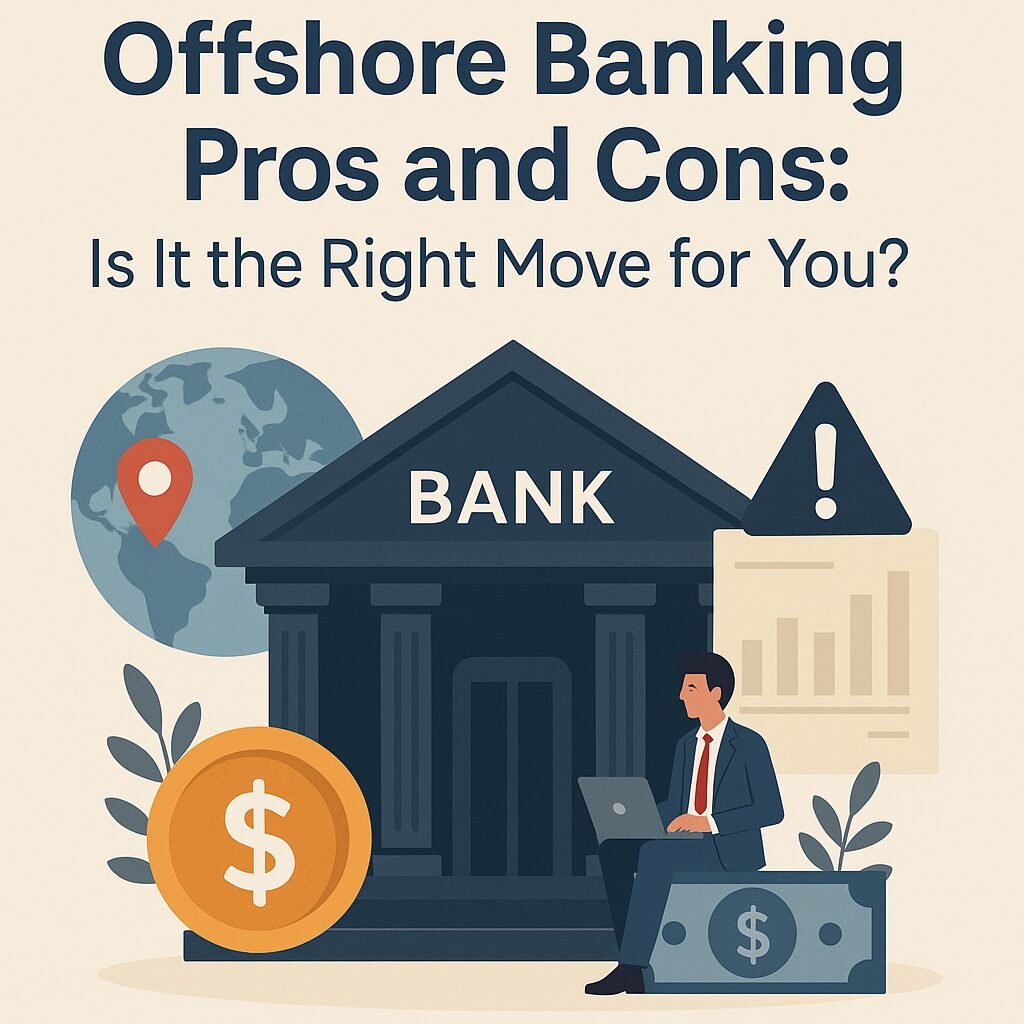Maximizing Financial Privacy: The Advantages of Offshore Banking
As concerns about financial privacy and data breaches continue to rise, many individuals and businesses are turning to offshore banking as a way to safeguard their assets and personal information. Offshore banking offers a range of benefits, from confidentiality and anonymity to protection against litigation and political instability. In this article, we’ll explore how offshore banking can help you maximize financial privacy and what risks and challenges you need to be aware of.
Table of Contents
Understanding Financial Privacy
Before we dive into the benefits of offshore banking, it’s important to understand what we mean by financial privacy. Financial privacy refers to the right to keep your personal and financial information confidential and protected from unauthorized access or disclosure. This includes information such as your bank account balances, transaction history, credit scores, and investment portfolios.
In today’s digital age, protecting your financial privacy has become increasingly challenging. Cyberattacks, data breaches, and identity theft have become more common, and many individuals and businesses have experienced the devastating consequences of having their personal and financial information exposed. This is where offshore banking comes in.
What is Offshore Banking?
Offshore banking refers to the practice of opening a bank account in a foreign country, typically in a jurisdiction with favorable tax laws and regulations. Offshore banks are often located in countries such as Switzerland, the Cayman Islands, and the Bahamas, which have strong financial privacy laws and banking secrecy regulations.
Offshore banking can be used for a variety of purposes, such as asset protection, tax optimization, and investment diversification. By opening an offshore bank account, you can keep your personal and financial information confidential and shield your assets from legal and financial risks in your home country.
Benefits of Offshore Banking
There are several key advantages to offshore banking that make it an attractive option for individuals and businesses looking to maximize financial privacy.
A. Confidentiality and Anonymity
One of the primary benefits of offshore banking is confidentiality and anonymity. Offshore banks are typically required by law to maintain strict banking secrecy regulations, which means that they cannot disclose your personal or financial information to third parties without your consent.
This level of confidentiality and anonymity can be particularly appealing for individuals and businesses that are concerned about the privacy of their financial information. By keeping your assets in an offshore bank account, you can protect yourself from prying eyes and potential legal or financial threats.
B. Protection Against Litigation
Offshore banking can also provide protection against litigation. In some cases, individuals and businesses may be targeted by lawsuits or legal action that threaten their financial assets. By keeping your assets in an offshore bank account, you can make it more difficult for litigants to access your funds and protect your assets from being seized.
C. Shielding from Political Instability and Economic Turmoil
Another advantage of offshore banking is that it can provide a shield against political instability and economic turmoil. In some countries, political unrest, economic instability, and currency devaluation can pose a significant threat to individuals and businesses that hold their assets in local banks. By opening an offshore bank account in a stable and secure jurisdiction, you can protect your assets from the effects of political and economic upheaval in your home country.
D. Investment Opportunities and Portfolio Diversification
Offshore banking can also offer investment opportunities and portfolio diversification. Many offshore banks offer a wide range of investment products and services that may not be available in your home country, such as foreign stocks, bonds, and mutual funds. By diversifying your portfolio with offshore investments, you can potentially increase your returns and reduce your risk.
Risks and Challenges of Offshore Banking
While there are many benefits to offshore banking, there are also risks and challenges that you need to be aware of before opening an offshore bank account.
A. Regulatory and Compliance Issues
Offshore banking is subject to a complex web of regulations and compliance requirements, which can make it difficult to navigate. Depending on where you open your offshore bank account, you may be subject to strict reporting and disclosure requirements, as well as taxes and fees that can erode your returns.
B. High Fees and Minimum Balances
Offshore banking can also be expensive. Many offshore banks require high minimum balances and charge high fees for their services, which can eat into your returns. Additionally, currency exchange fees and transaction fees can add up quickly, making offshore banking a costly proposition.
C. Potential for Fraud and Scams
Finally, offshore banking can be a target for fraud and scams. Some offshore banks may be less reputable than others, and it can be difficult to determine which banks are legitimate and which are not. Additionally, offshore banking can attract criminals and money launderers, who may use offshore bank accounts to hide their illicit activities.
Conclusion
In conclusion, offshore banking can provide many benefits, such as financial privacy, asset protection, and investment opportunities. However, it is important to carefully consider the risks and challenges before opening an offshore bank account.
To maximize the benefits of offshore banking, it is recommended that you do your research, work with a reputable offshore bank, and stay compliant with all regulatory requirements. This includes understanding the reporting and disclosure requirements in your home country and the jurisdiction where you hold your offshore bank account.
Additionally, it is important to be aware of the potential for high fees and minimum balances, as well as the potential for fraud and scams in offshore banking. By staying vigilant and informed, you can potentially benefit from the advantages of offshore banking while protecting your assets and financial privacy.
Ultimately, whether or not to pursue offshore banking is a personal decision that depends on your individual financial goals and risk tolerance. By carefully weighing the benefits against the risks and challenges, you can make an informed decision about whether offshore banking is right for you.

